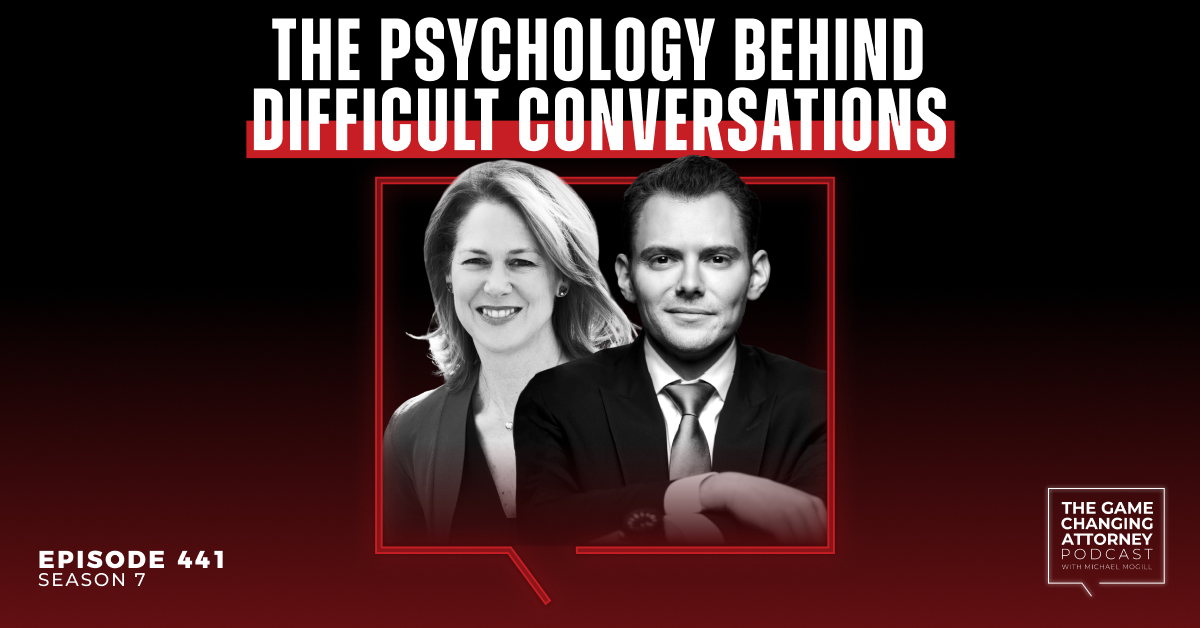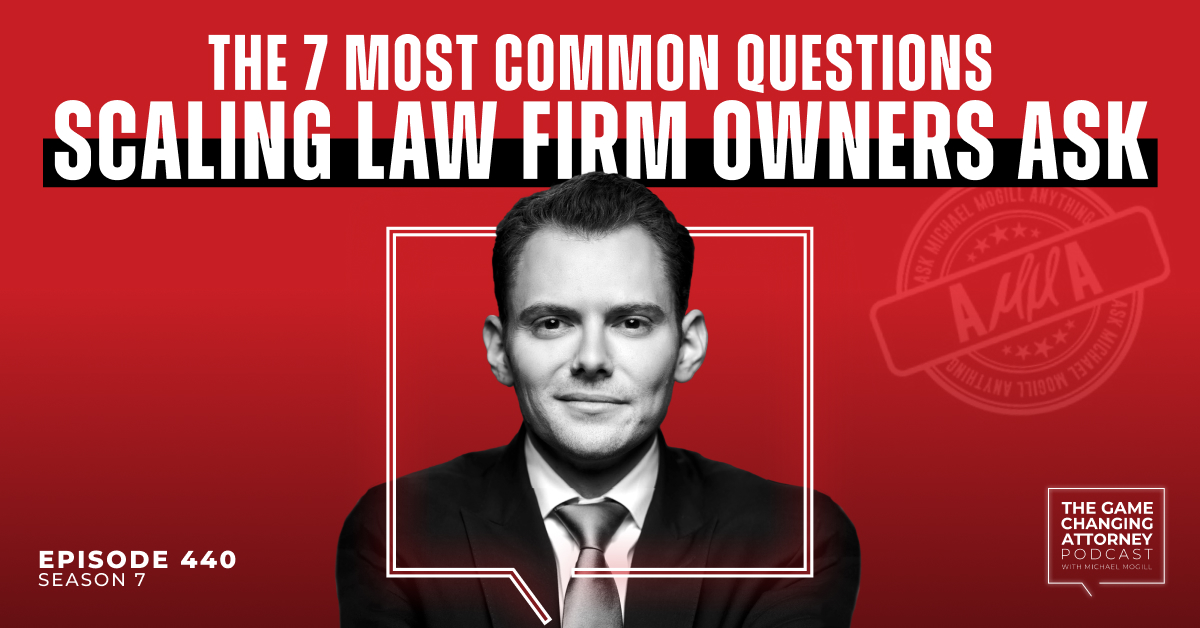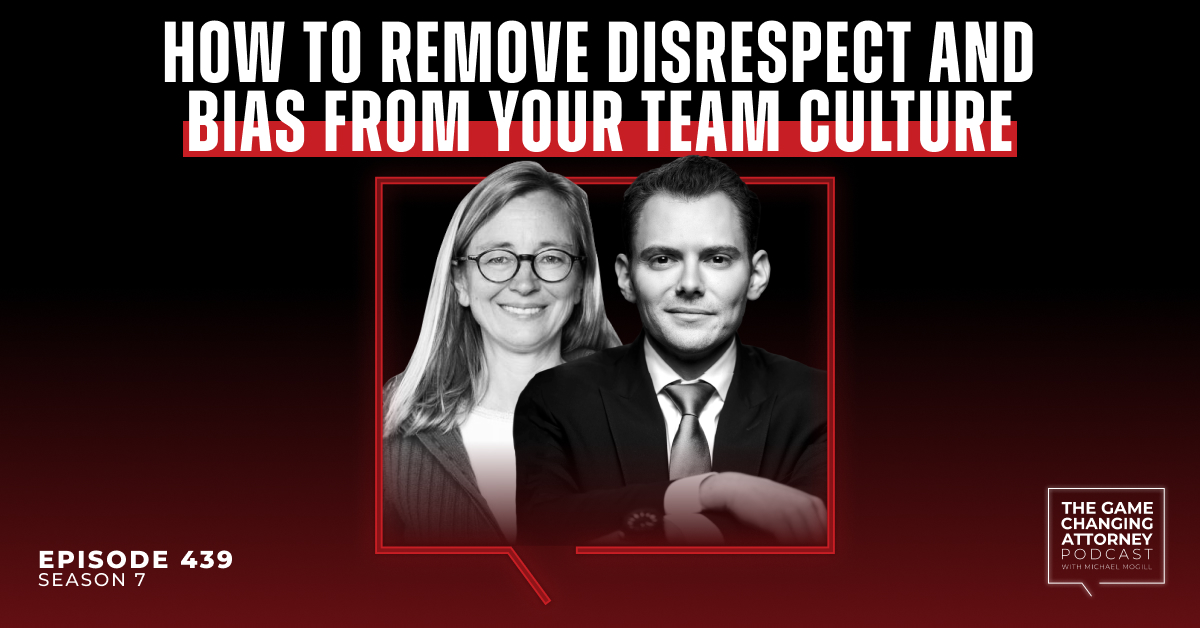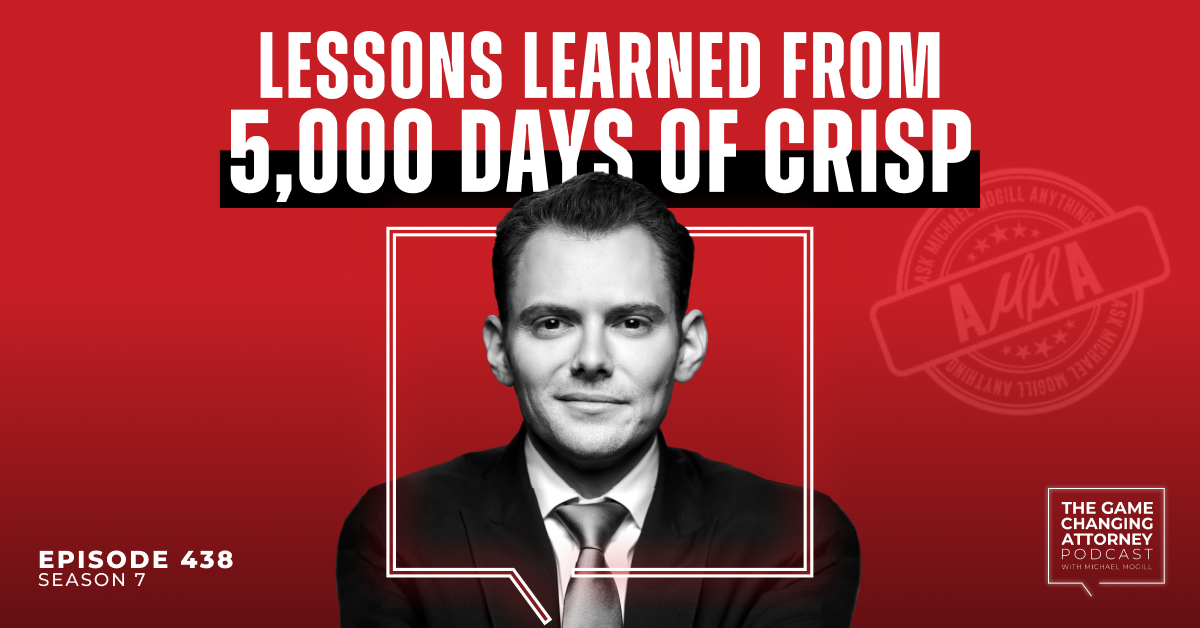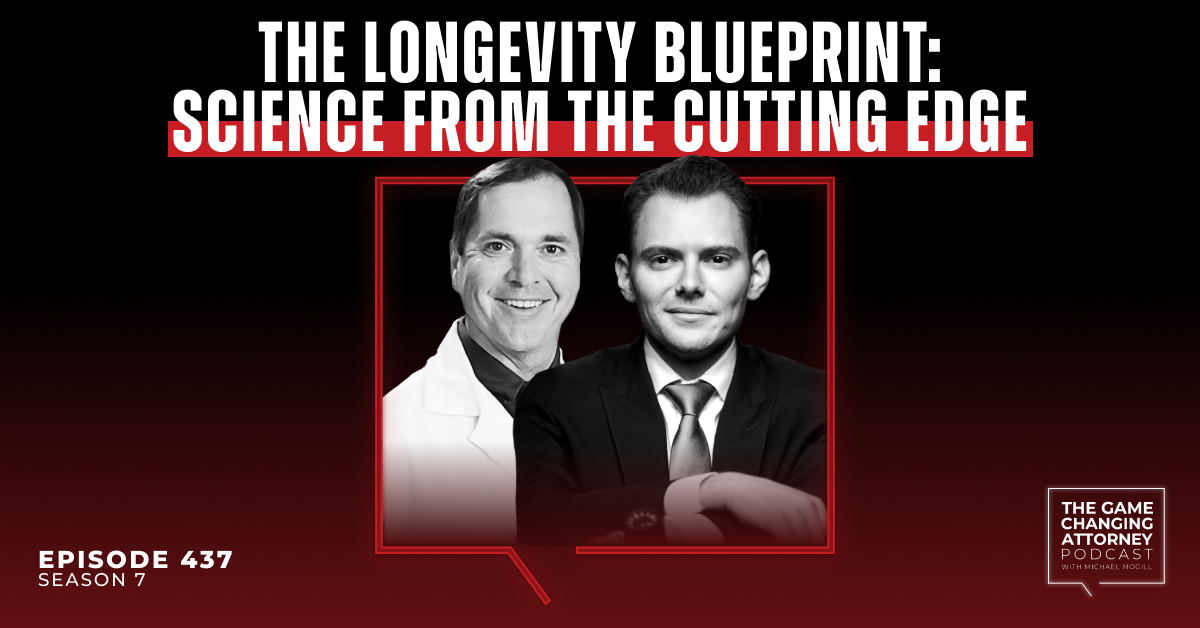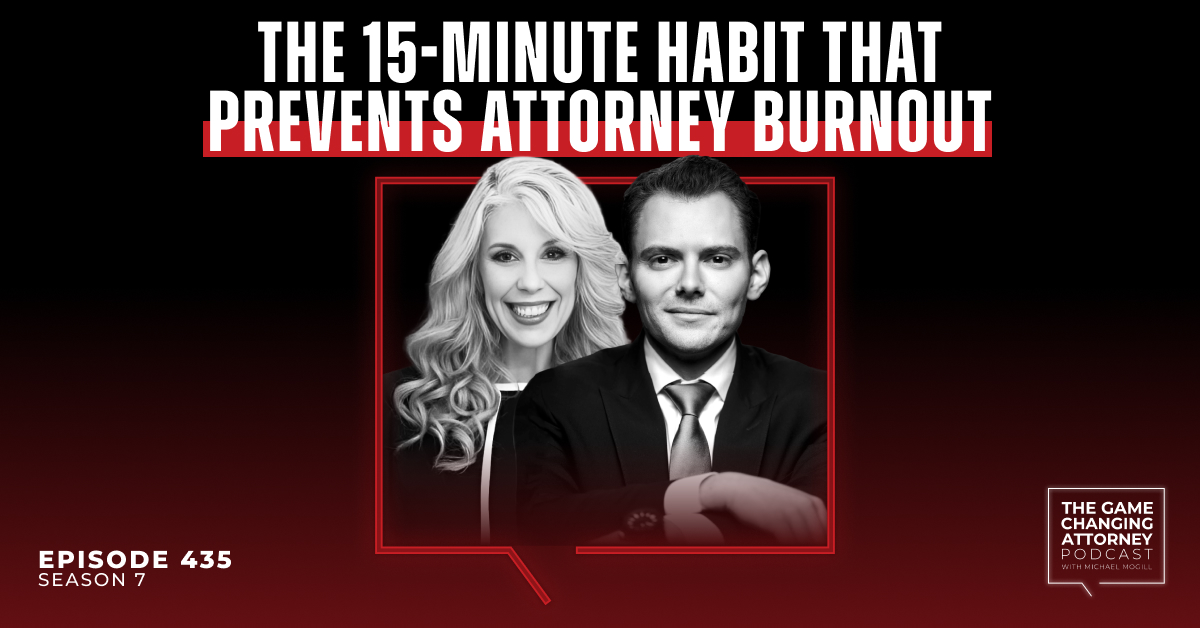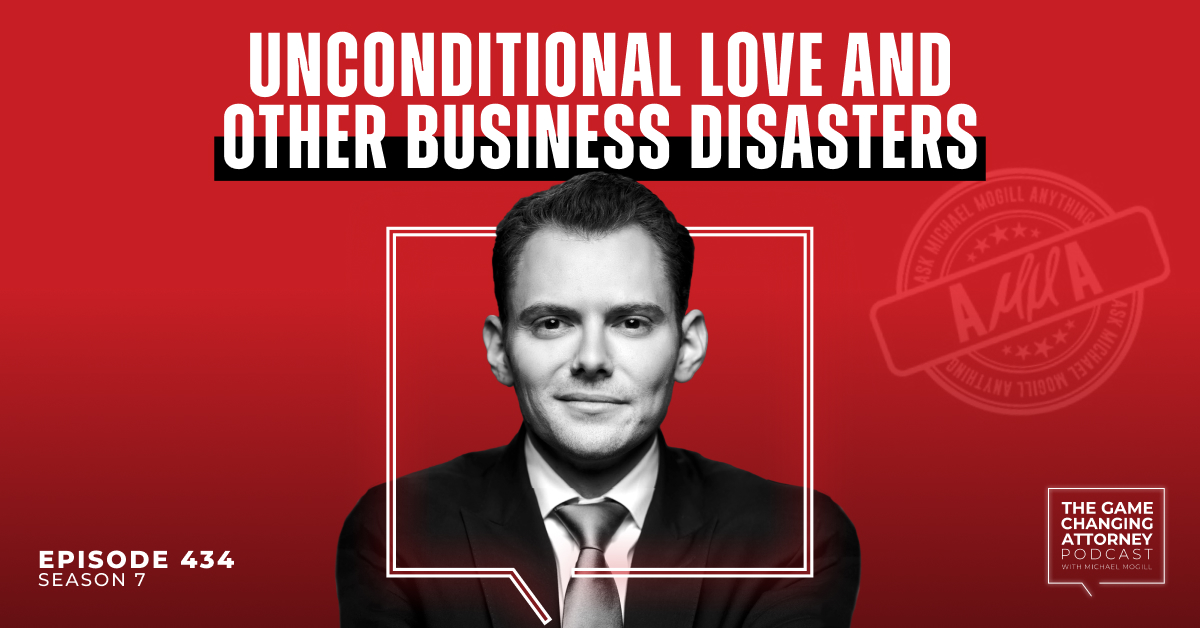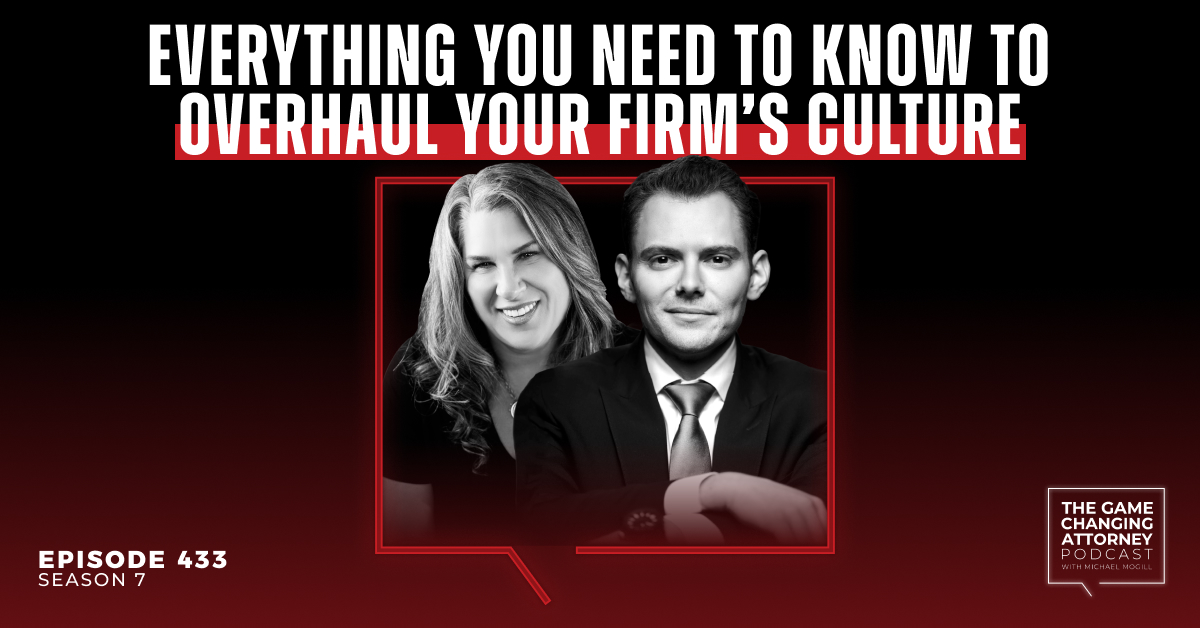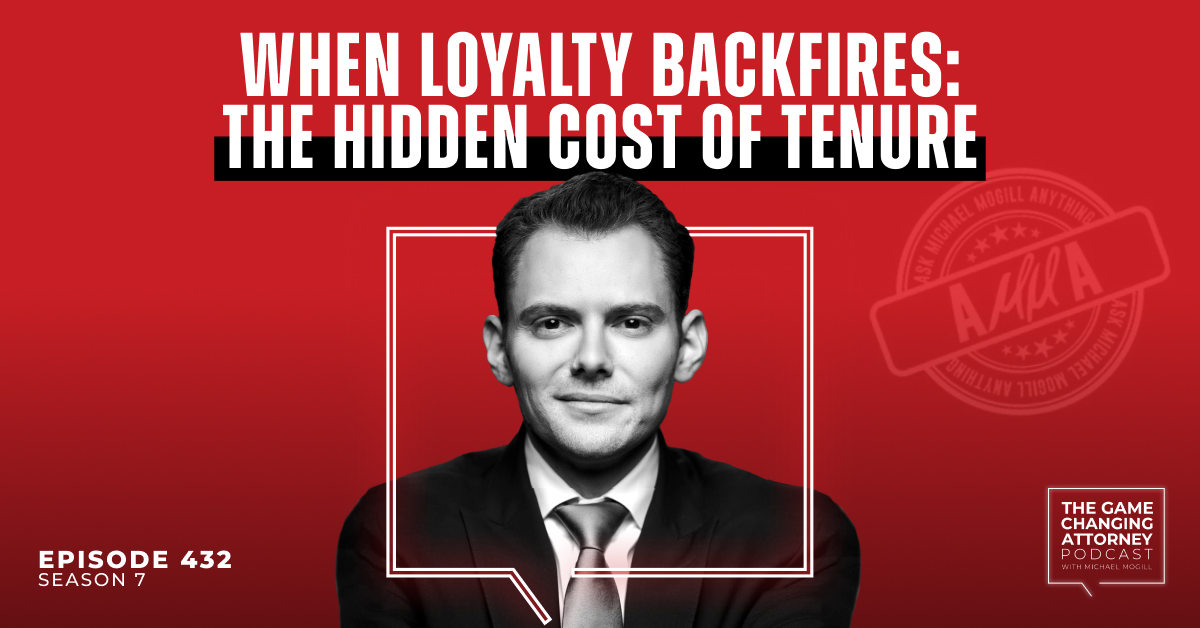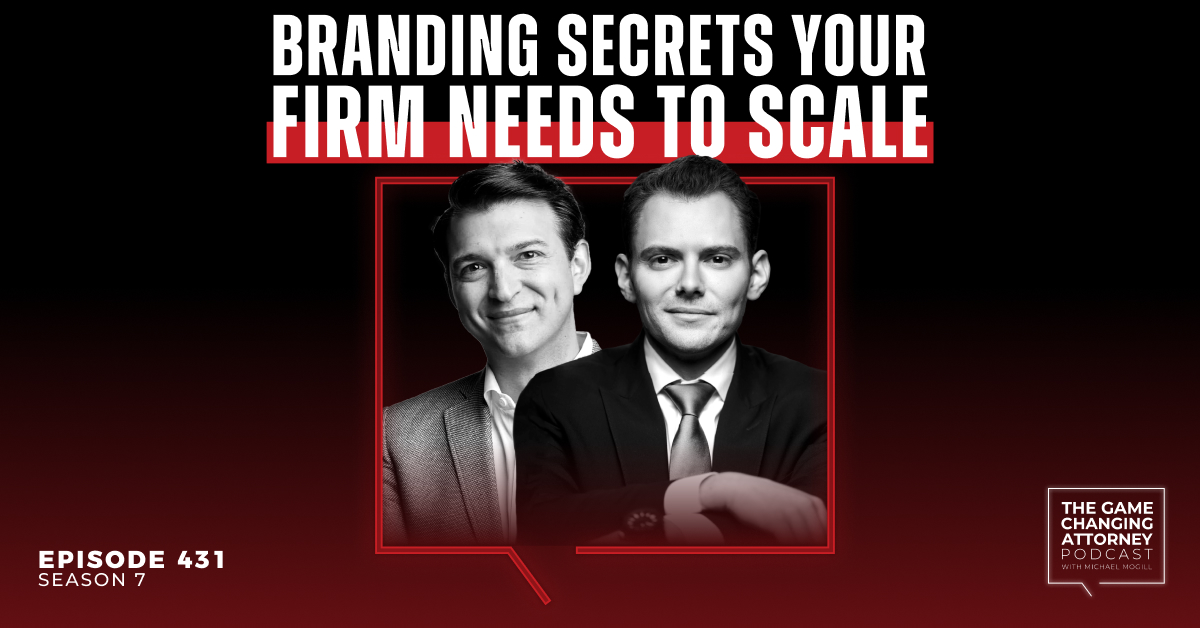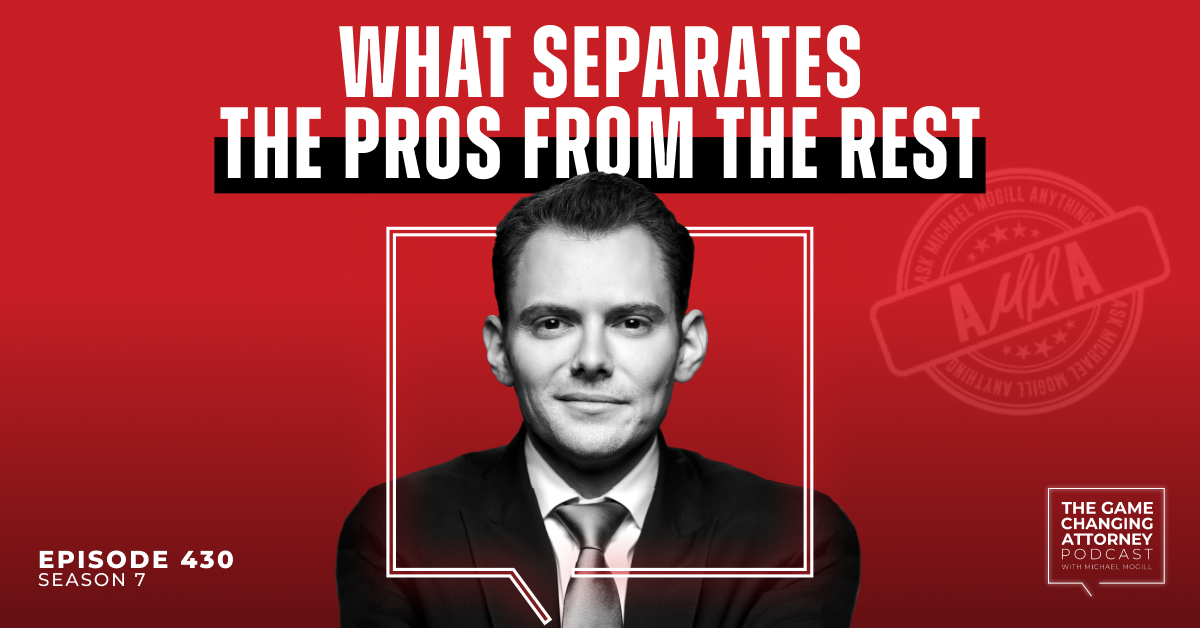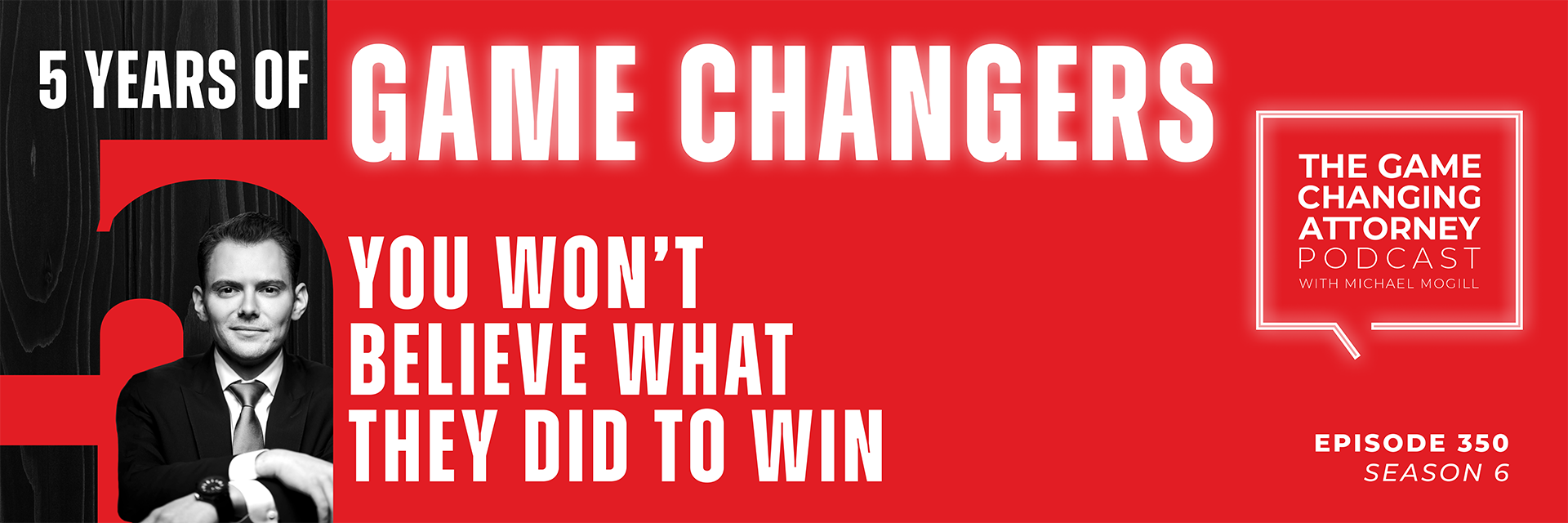
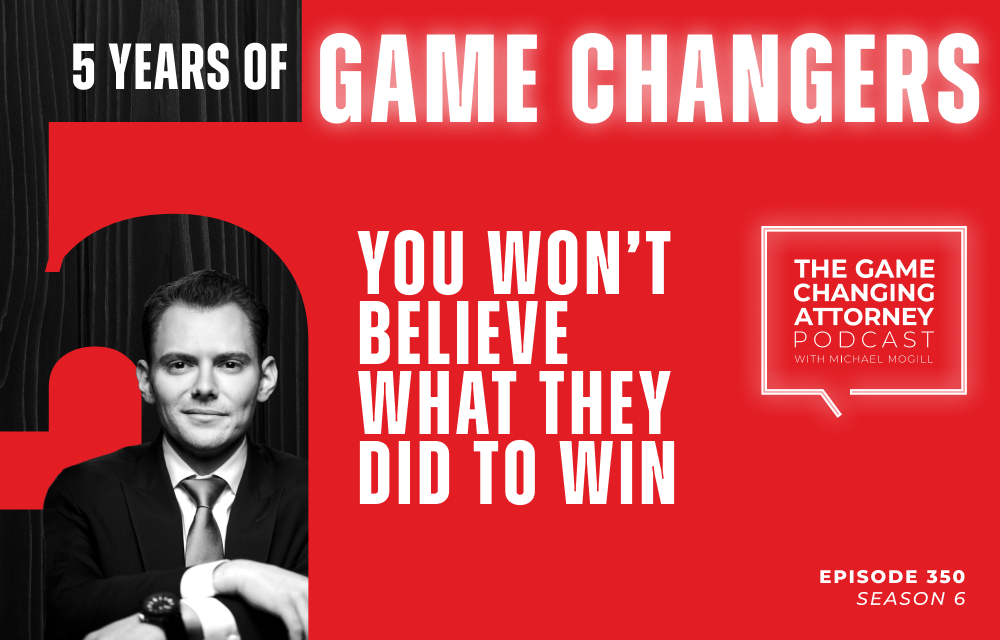
Episode 350 — 5 Years of Game Changers: You Won’t Believe What They Did to Win
Welcome to a landmark episode of The Game Changing Attorney Podcast!
Today marks five years. Five years of conversations that have challenged convention, inspired action, and elevated what’s possible in the legal industry.
Over this journey, we’ve sat down with the boldest thinkers and most innovative leaders — the ones who aren’t just playing the game, but changing it. And to celebrate this milestone, we’re taking you back through some of the most powerful, perspective-shifting moments we’ve shared on this podcast.
Here’s what we’ll rediscover:
- Jesse Cole’s Revolutionary Approach: His fan-centric strategies with the Savannah Bananas that turned traditional baseball on its head
- Chris Voss’s Negotiating Skills: The art of strategic control and curiosity in achieving successful outcomes
- John Morgan’s Career Wisdom: Insights on navigating pivotal crossroads that define professional growth
- David Goggins’s Relentless Drive: Exemplifying the power of pushing beyond limits and achieving the extraordinary
- Jan Dils’s Bold Advertising Strategies: Daring tactics that challenged and transformed industry norms
Thank you for being an essential part of this community. Your commitment to growth, innovation, and bold action is what makes this movement possible. Here’s to the next chapter — to raising the bar, breaking through, and unlocking even greater potential. Let’s dive in and revisit the defining moments that made these first five years unforgettable — and set the stage for what’s next.
Listen & Subscribe
Show Notes:
Jesse Cole
Contrarian success strategy. “I’ve learned that if you really want to stand out, you have to do the exact opposite of what everyone else is doing. We focus completely on fans first and entertainment — no advertisements at our ballpark, a senior citizen dance team, breakdancing coaches, and much more. It’s an absolute circus, and a baseball game breaks out.”
Fans first mentality. “Before we do anything, we always ask, what would the fans want? Just like Bezos or Howard Schultz with the empty chair concept, we make sure our actions are always aligned with fan interests. That’s why we eliminate ticket fees, merchandise taxes, and keep our pricing transparent.”
The power of memorable experiences. “We used to spend a lot on traditional marketing without success. Then we shifted to creating experiences people talk about—things that make attendees leave the ballpark saying, ‘You wouldn’t believe what they did!’ From scripting our events like a movie to crafting special moments, we focus on creating an emotional connection with our audience.”
Chris Voss
Illusion of control in negotiations. “The secret to gaining the upper hand in a negotiation is giving the other side the illusion of control. You do this by asking ‘how’ and ‘what’ questions, which are deferential and make them feel involved. It’s not about the answer but the effect of asking the question. You plant a seed in their mind, making them think twice and consider the role of their entire team without realizing what’s happening.”
Mindset of discovery. “The mindset of discovery is essentially a positive, curious frame of mind. It allows you to take in more information, see things faster, and enhance pattern recognition for better mental performance. You’re at least 31% smarter, which gives you an edge. It’s about understanding that neither side has all the cards, and in that overlap, you can discover crucial, shared information for an exponential effect.”
Recognizing negotiation dead ends. “It’s not a sin to not get the deal; it’s a sin to take too long to realize it’s not working. Ask innocuous ‘how’ and ‘what’ questions to uncover whether you’re being used for due diligence or free consulting. If they describe an outcome that doesn’t include you, they might reveal their true intentions. If a negotiation isn’t progressing or becomes predatory, disengage politely, preserving the possibility of future collaboration without compromising your position.”
Jan Dils
Advertising and persistence. “Back in ’94 and early ’95, I bought the back of the phone book. I had no way of paying for it, but I thought, if no one knows you, how do they know what you do? That began my journey in advertising — starting with the phone book, then moving to TV and radio.”
Transformative jingle. “The jingle that everyone knows is not the original. After going through four iterations, a friend helped me find the right tune by discussing my story and perseverance. My dad’s challenges motivated me, and that spirit is captured in the jingle. Once I put aside the fear of being different, I saw its value.”
Facing industry pushback. “The legal community was not pleased with my jingle. It launched in 2001 and led to double-digit growth locally. When I moved into Charleston, despite skeptics, the jingle became part of a campaign against me, even inspiring a bill aimed at restricting lawyer advertising. Through it all, my focus was clear: to ensure that when people think of Social Security, they think of Jan Dils.”
John Morgan
Fork in the road. “When I was a young lawyer focused on personal injury, I reached a point where I disagreed with my firm’s assessment of my worth. They told me there were three partners ahead of me, so I faced a choice: stay, leave for somewhere else, or start my own firm. I chose to start my own firm rather than wait because I saw no opportunity where I was—only a dead end.”
Incentivizing performance. “At Morgan and Morgan, we don’t believe in discretionary bonuses. Instead, performers are given benchmarks, and when they achieve them, they get paid. This isn’t tied to the firm’s annual performance; individuals know with certainty what they’ve earned as the year progresses.”
Non-lawyers in leadership. “I’m intrigued by firms that aren’t run by lawyers. Many in my leadership team are non-lawyers with very specific skill sets, hired from places like Google and national ad agencies. While I don’t know the intricacies of a call center, my team members do. Just because you’re a lawyer doesn’t mean you have to run the business side of a firm.”
David Goggins
Taking Souls. “Taking Souls is about rising above in situations where most would be defeated. In Hell Week, I saw instructors who expected us all to be broken by Wednesday. But I showed strength beyond what was expected, leaving them and my peers wondering how I could do it. I used that doubt to fuel myself and inspire my crew to elevate their own efforts. It’s thriving where others falter.”
Self-judgment by reflection. “When people are around someone who works as hard as I do, they start to introspectively realize their own shortcomings. It’s not that I’m judging them—it’s that they judge themselves against my drive. This self-reflection often makes them resent the hardworking person, revealing their own lack of effort.”
Using criticism as fuel. “I used to let hate bother me, but I learned to harness it. I record the negative things people say, mix it with music, and turn it into motivation. Successful people focus on growth, while naysayers waste energy on negativity. You won’t find a hater doing better than you. Now, I use their attention as fuel to push even harder.”
Connect with Michael
- Text directly at 404-531-7691
